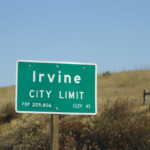
Students often have trouble seeing their school lessons as relevant to real life. Not only can this impact their motivation, it can make the information more difficult to comprehend and retain. For many students, it’s easier to understand a problem if it’s put into real-life situations.
Real estate is a complex field that requires skills in math, science, English, social studies and home economics. By incorporating real estate-based lessons into your curriculum, you can help students gain valuable skills in practical math application, presentation giving, forming a persuasive argument, earth science and so much more! Here are some awesome resources to give your class a unique, real estate-based lesson plan on just about any subject.
Use these links to jump to a particular subject:
Math
Science
English
Social Studies
Home Economics
Math-Based Lessons
Real Estate Tycoon is a lesson by the National Council of Teachers of Mathematics where students design their own home, then simulate the processes of building and selling it. They’ll use graph paper to create drawings to scale, plus solve equations using fractions and decimals. Once they’ve “sold” their home, students will simulate investing their profits into the stock market. Recommended grades: 6-8
This fun lesson has students work with mean, median and range to compare becoming a real estate agent with a customer sales representative. They’ll then have to use their understanding of the information to decide which position would lead to a more fiscally beneficial career path.
Recommended grades: 6-8
Need a unique real world application for geometry? Put it in terms of decorating a new home: if sellers need to replace the carpet in a room that’s 12 feet by 9 feet, how much will they need to buy? How much paint for the walls? How big of a couch will fit in the living room? Is there room in the backyard to install a pool? What about a privacy fence?
Recommended grades: 4-6
By planning and designing their own playground, students will learn to find a maximum area within a given parameter. They’ll come up with their own designs using different variables and present their plans to a committee for approval.
Recommended grades: 6-8
Teach your class the math of house buying by demonstrating how to figure out how home mortgages work. They’ll work with different interest rates and time variables, as well as look at progress made on overall payment after a certain amount of time.
Recommended grades: 9-12

Science
Martian Real Estate: A Good Investment? puts students in the roles of interstellar real estate agents! Assign imaginary clients who are considering purchasing land on Mars, each with different needs and preferences. Students will compare the terrain and conditions of Mars and Earth, discussing what makes each one different and how those differences impact how someone lives. Then, they’ll write letters to their client to explain which planet would make the best home for his or her needs.
Recommended grades: 3-5
Being a real estate agent means confronting all kinds of obstacles, including mold and mildew in older homes. Hold the Mold! teaches about the different kinds of mold and how it grows, and you can tailor the lesson to focus on what’s common to your region. It also discusses the health effects of mold and how to prevent it from growing in your home.
Recommended grades: 5-8
When clients are moving across the country, they’ll want to know about the climate of their new home. This National Geographic lesson will help teach them to read climate maps and make predictions about weather. They’ll learn how to look up average temperatures, precipitation levels, and any extreme weather conditions common to the area. Students can be given clients with specific criteria for their ideal homes and find the right houses in the right areas for each.
Recommended grades: 3-5
Mold isn’t the only pest real estate agents have to look out for—termites can be a problem, too! In Termite Trails, students will get a close-up, hands-on look at the way termites move and behave. They’ll observe behavior, record data, analyze the data to draw conclusions, and even make predictions.
Recommended grades: 5-12
Climate change and energy conservation can easily be worked into a real estate angle. Have your students design a sustainable house based on the climate and characteristics of your region. You can even extend it by having some students look at modifications that can be made to older homes to make them more energy efficient.
Recommended grades: 9-12
Sometimes real estate agents have to bring an older property back to life with some landscaping. Have students do research to find out which flowers and shrubs are native to the region, then come up with a design proposal for a garden. You can even look at different areas to see whether or not a client could bring her hydrangeas to re-plant in her new Seattle home.
Recommended grades: 3-6

English
Being a real estate agent means knowing how to best communicate the needs of your client and what a home has to offer. Help your students learn to talk the talk by learning about Artistotle’s ideas on persuasion using logos, pathos, and ethos. Students can prepare a presentation about why their classroom is the ideal learning environment, why their living room is the best space for gaming, or why their home is the perfect place to raise a family. Give them the opportunity to answer questions and overcome challenges — for example, if their home has a pool, ask them to persuade someone who prefers an open backyard.
Recommended grades 6-10
In Flag Wars, students will take a closer look at zoning laws and policies. How do they work to shape the character of an area or neighborhood? Have they ever been used to benefit some and work against others? End the lesson by having students write a reflective essay on the practice of gentrification, its effect on communities, and its role in the real estate market.
Recommended grades 9-12
Real estate agents don’t just have to be strong presenters, they have to be able to effectively promote a house on paper, too. Challenge your students to practice persuasion through advertising by coming up with several different kinds of ads for a fictional house for sale: a newspaper listing, an informational flyer for the front yard display, even an email to an interested party. Discuss the importance of including facts to attract a wide audience as well as how to narrow in on a particular market.
Recommended grades 6-8
Social Studies
It’s important for real estate agents to know about the geography, culture, and history of the communities in their area. Have students think like an agent to create maps of their neighborhood. Discuss connections between geography, culture, and economy — for example, if a student lives near a body of water, there might be a lot of seafood restaurants and parks in the area. Students can even look back at their area’s history to see how it has changed and developed over the years.
Recommended grades: K-8
Learning about the Central Bank can teach students not only about money, but also about the role government plays in financial currency. How do trade and global economics affect the housing market? How can people use the banking system to their advantage when it comes to buying a home?
Recommended grades: 9-12
Buying a home is an important investment — but why exactly? Teach your class about the importance of a diverse financial portfolio as well as how to identify and assess risks. Students will each receive a portfolio of investments and decide which opportunities are best suited for clients of different ages and economic backgrounds. Discuss what it means to “put all your eggs in one basket” and why it’s a risk. (For example, why would it be fiscally irresponsible to put all of your savings into the purchase of a new house?)
Recommended grades: 9-12
Though they aren’t lawyers, it’s important for real estate agents to have an understanding of property law and the economy. Discuss the components of capitalism and the legal features of property rights. How do they work and who benefits the most? How have they changed throughout history?
Recommended grades: 9-12
Get a lesson in the history of real estate when you take a look at the effect of blockbusting in post-war Baltimore. After World War II, the area saw a shortage of houses and jobs, causing many urban neighborhoods to lose their economic stability and even affected access to certain social services. Explore the role that race played and discuss why the practice of blockbusting was unethical for real estate agents of the time.
Recommended grades: 9-12
Home Economics
Sometimes homebuyers feel like they’re compromising, but it’s a real estate agent’s job to help them see the possibilities! Assign hypothetical rooms of different size and function to each person in the class and have each person come up with a plan to maximize the space in easy, affordable ways. They can build extra shelves, create closet organizers, or even find new functions for furniture and objects.
Recommended grades: 6-10
If an agent is showing an empty house, it’s important to help potential buyers picture what their furniture could look like. With this interior design lesson, students will look at traffic pattern rules and general furniture placement guidelines to arrange a room. They’ll look at principles of design, elements of a floor plan, and can even incorporate ideas of feng shui.
Recommended grades: 6-10
When real estate agents hold an open house, most people expect there to be food. Teach your students to set a well-organized buffet table to make the best impression. Discuss the difference in menu between a morning and evening buffet, as well as what’s easy to eat on the go. Discuss considerations for keeping the house and serving area tidy — avoiding foods that drip, for instance.
Recommended grades: 6-10
Keep in mind that most of these lesson plans can be adjusted for any grade level. No matter the subject, real estate can add a layer of accessibility to your lessons and lead to better understanding for your students.
Other popular posts:
1. The Complete Safety Guide for Camping with Dogs
2. The Fate of Your Furniture: Selling Unwanted Furniture for a Big Move
3. How to Keep Your Home Safe During The Selling Process
4. How to Choose the Best Real Estate School in Your State
5. Best Books for New Real Estate Agents: 10 Must-Reads



























 United States
United States Canada
Canada